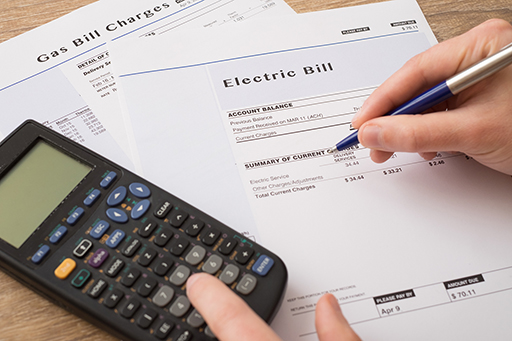10 Your own budget
You’ve looked at how to build a budget. Now start to have a go for yourself. You can either add your answers into the table below or download and complete a Word version of the budget grid [Tip: hold Ctrl and click a link to open it in a new tab. (Hide tip)] . You can complete and refine this after you have finished this course, particularly as you may have to spend time looking through your financial documents to get the details you need.
A link is provided at the end of the session if you need further guidance on building your own budget.
Pay close attention to the income and spending categories.
One of the key benefits of a budget is the insights you can gain from it. When you’ve compiled your budget complete the activity below.
Activity 4 Reflecting on and reviewing your budget
Part 1 Reflecting on your budget
| Current Month | Full Year | |
| Balance from previous period | ||
| Income | ||
| Income (after all deductions like tax) | ||
| Pension income (after tax) | ||
| Investment income (interest etc.) | ||
| Other income | ||
| Money from sale of assets | ||
| Total Income (A) | ||
| Essential Expenditure | ||
| Mortgage or rental costs | ||
| Council Tax | ||
| Water charges | ||
| Utilities (gas, electricity, other fuels) | ||
| Groceries (food and drink) | ||
| Day-to-day spending (lunch at work etc.) | ||
| Essential travel & car expenditure | ||
| Insurance premiums | ||
| Phone & Internet costs (including mobiles) | ||
| TV costs (including TV licence) | ||
| Clothing | ||
| Hairdresser costs | ||
| Medical costs (dentist & other) | ||
| Home and garden maintenance | ||
| Total Essential Expenditure (B) | ||
| Other Expenditure (Desirable/non-essential) | ||
| Holidays/optional travel | ||
| Socialising & eating out | ||
| Club memberships | ||
| Presents | ||
| Other spending (not classified above) | ||
| Money set aside for savings & contingencies | ||
| Total Other Expenditure (C) | ||
Outturn (= balance for start of next period) = Total of A minus (B+C) |
Part 2 Reviewing your budget
Answer the following questions:
- Have you got a surplus of income over spending, or do you spend more than you earn?
- Are all months similar when it comes to budgeting?
- What’s the reason for having a contribution to a savings account or for ‘contingencies’ as an item of monthly spending?
Answer
- If you’ve ended up with a surplus of income over spending this is good news. It enables you to save to cover periods where spending exceeds income. If you have an excess of spending over income you will have to cut your spending down, or find a way to cover the shortfall (your savings account?).
- No, each month is different. Spending should be expected to peak at key points of the year – at an annual festival that you celebrate with your community, like Christmas, or when you go on holiday. Income is often flat, but may increase if you get a bonus, or your work is seasonal and you get overtime in some months of the year.
- This is a good way to embed a savings activity habit into your everyday financial life. It makes sure that you have extra resources to draw on when you make major purchases, or at other times when your finances are under pressure.

